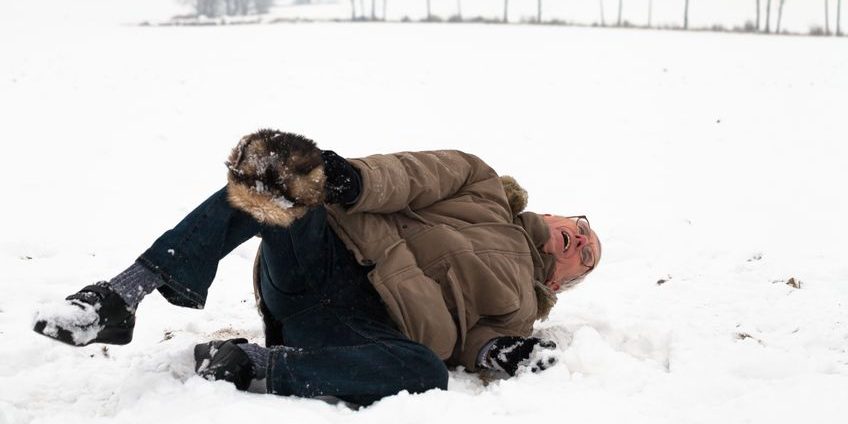Nobody likes to fall down…it hurts.
For some people, especially seniors, falling is more than an inconvenience or a sore wrist; it can cause serious health problems. It’s important to speak with your doctor and healthcare team about ways to prevent
falls.
Minimize your risk of falling
Monitor medications: You may be taking medications that make you feel weak, dizzy or unbalanced. If so, you need to be extra cautious, especially around stairs and on uneven surfaces. Talk to your doctor, pharmacist or other members of your healthcare team about these side-effects.
Stay active: It might seem scary to be active when you feel as though you are going to fall, but activity is important to keep your muscles strong and improve your balance. Talk to your doctor or an exercise specialist about activities you can do without putting yourself at risk.
Have proper footwear: Choose comfortable, stable shoes with non-skid treads. Shoes that don’t fit properly or that are slick/smooth on the bottom can cause you to fall more easily. This is especially important in the winter when icy sidewalks are a problem for everyone.
Check your vision: Poor vision can increase the chance of a fall. Get your eyes checked regularly so any problems can be identified early. If you wear glasses, keep your prescription current.
“Fall-proof” your home: Have someone help you ensure all of the hallways and walking areas in the house are free from clutter, cords, loose rugs and anything else you could trip on. Ensure you have plenty of lighting to see where you are going. Install handrails, non-slip mats and stair treads, and other assistive devices to help you keep your balance. Move items you use regularly to lower shelves so you won’t have to reach for them.
Use health aids: If you live alone, consider getting an alert device that can summon help or ensure you always have a phone with you, even going from one room to the next. Your healthcare team may also suggest walking aids to help you maintain your balance.
See your family physician for your annual physical: Visiting your family doctor for your annual checkup is good for many reasons, including catching low blood pressure, heart arrhythmia and inner ear issues. All can contribute
to dizziness and feeling off balance.
The Edmonton O-day’min Primary Care Network has healthcare professionals, such as exercise specialists and pharmacists, who work with your doctor to help you manage your health. They can also talk to you about how to prevent falls and what to do if you do fall. Talk to your team today.
References and Resources: “Preventing Falls in Older Adults” (myhealth.alberta.ca)




